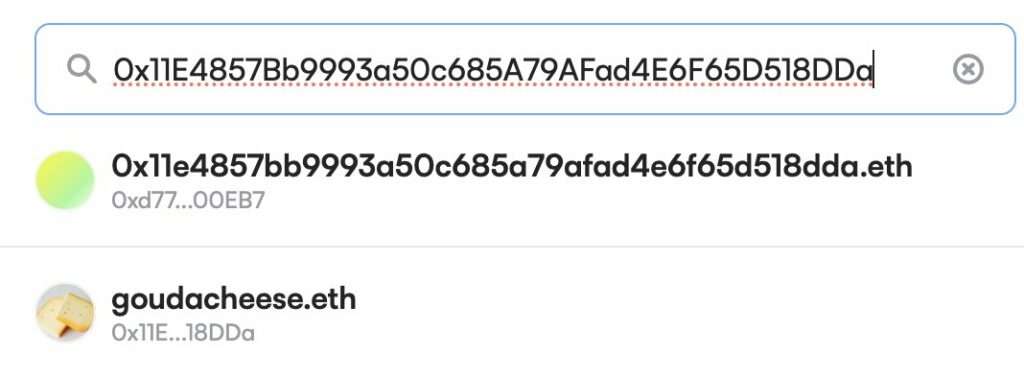Founder of Uniswap warns about a scam where scammers mimic Ethereum wallet addresses as Ethereum Name Service (ENS) domains.
Hayden Adams, the founder of Uniswap a decentralized exchange (DEX) has issued a warning to the cryptocurrency community about a scam that involves utilizing wallet addresses as Ethereum Name Service (ENS) domains.
On February 14, Uniswap founder Adams posted a warning on X about con artists mimicking his Ethereum wallet. Scammers duplicated and registered his wallet address as an ENS wallet with an ETH extension according to the executive who detailed the situation.

In addition, the founder of Uniswap stated that when he pasted his wallet address into specific user interfaces, the top search result would be an ENS match unrelated to his address.
The fraud aims to confuse individuals who send digital assets, increasing the risk of transferring their cryptocurrency to the wrong address instead of the intended recipient.
Uniswap founder Adams recommended that user interfaces block out addresses like these to prevent any damage caused by the attack vector. In a post, Taylor Monahan, the founder of Ethereum wallet management MyCrypto revealed that the same fraud vector was used during the early days of the MyEtherWallet wallet service.
This is despite the fact that the scam vector appears to be relatively recent. During that period, it was a problem for registrations and resolutions for names that began with the letter “0x,” according to Monahan.
Nick Johnson, the creator of ENS and the principal developer, also commented on the scam vector stating that interfaces should not autocomplete names.
The developer deemed it “far too dangerous,” and the user experience rules of ENS advise against doing it. Meanwhile, cryptocurrency investors reported getting emails in January from con artists pretending to be representatives of prominent Web3 companies.
On January 23, con artists were responsible for facilitating a widespread email campaign that pushed phony airdrops while giving the impression that they were from organizations such as WalletConnect, Token Terminal, and other cryptocurrency businesses.
After some time, investigators discovered that hackers had compromised the security of the email marketing company MailerLite leading to the phishing attack.
The company announced on January 24 that hackers had successfully taken control of Web3 accounts through a social engineering attack.
Since the beginning of the campaign, the research team at Nansen an analytics platform, has determined that the phishing wallet belonging to the con artist had received cash inflows totaling around $3.3 million.












